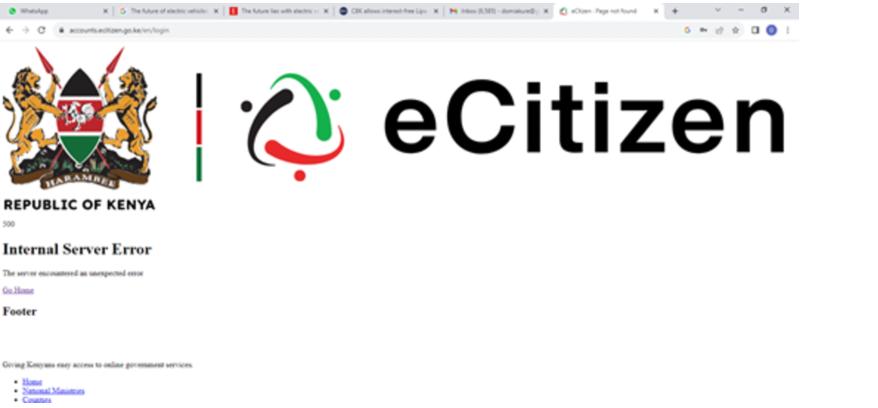The government irregularly collected more than sh2.1 billion from the public through unlawful charges on digital payments made via the eCitizen platform, according to a special audit report released by the Office of the Auditor General.
The Special Report on eCitizen, published in March, shows that the National Treasury charged a fixed convenience fee of Sh50 per transaction instead of applying a prorated administrative fee, as directed in Gazette Notice No. 9290/2014 issued on December 23, 2014.
This led to the accumulation of more than Sh1.8 billion in irregular collections before January 23, 2023.
"Gazette Notice No. 9290 of 2014 dated 23 December 2014 required the Nominal Administrative Fee to be charged per transaction, which was to be a prorated percentage of the amounts paid.
However, during the period prior to January 23, 2023, the National Treasury did not establish a prorating band," the report read in part.
"Instead, the Convenience Fee was charged at Sh50 or USD1 per transaction, contrary to the Gazette Notice. In this regard, Sh1,807,946,257 and USD3,333,989 were irregularly collected from the public."
Despite a new Gazette Notice, No. 17422 of December 14, 2023, reaffirming the requirement to apply prorated charges, the Sh50 flat fee continued to be levied between December 14, 2023 and June 30, 2024.
This resulted in the collection of an additional Sh30,729,415 through the first payment gateway, used by government agencies already on eCitizen before the president’s directive, and Sh319,029,250 through the second gateway used by agencies that joined later.
The report also uncovered the illegal diversion of funds from the 222222 Paybill, which is designated for all payments made to government services.
On January 25, 2024, bank records revealed that Sh127 million was transferred from the paybill account to private entities instead of being sent to the official settlement account held in a local commercial bank.
A total of four such transactions were flagged.
Another alarming finding in the audit was the payment of over Sh492 million to a company that was not party to the official agreement to offer services meant to improve the platform.
eCitizen, first launched in 2017 and expanded rapidly in 2022 following President William Ruto’s directive for all public payments to be centralised through the system, has come under scrutiny for the way funds are managed and distributed through the digital platform.
